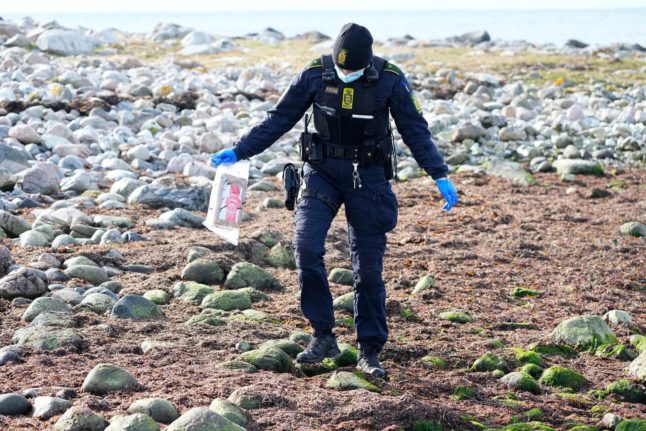Bags and packages filled with drugs, weighing a total of 840 kilograms, have been discovered by Central and West Zealand police washed up on beaches in the region this weekend.
The discoveries were described by senior investigator Kim Løvkvist as “remarkable”.
“At the current time we have no knowledge of where the drugs come from, how long they’ve been in the water, or even if it was meant for someone in Denmark,” he told newswire Ritzau.
Those points will form part of the police investigation, he said.
“But it looks like drug smuggling gone wrong,” he added.
Some of the packages have been tested and confirmed as containing cocaine. The others are yet to be tested but are also thought to be cocaine.
The exact amount will also be confirmed by additional tests.
The first discoveries of the drugs were made on Saturday afternoon, when several bags filled with drugs were discovered by members of the public who were walking on a beach near the town of Sjællands Odde.
Additional bags, also containing drugs, were found washed up along the coast in nearby locations including Sejerø bay and Sejerø island.
A total of 18 sports holdalls taped to life jackets and lights were found by police.
“We would strongly advise the public not to take potential narcotics home with them,” senior inspector Løvkvist said in a statement on Sunday. Any walkers who find more bags should contact the police immediately, he said.
Since the initial find, police have intensified their search of the area, using boats, drones and military aircraft.
Løvkvist said the amount of drugs was the “largest ever” he had seen wash up in Denmark.



 Please whitelist us to continue reading.
Please whitelist us to continue reading.
Member comments